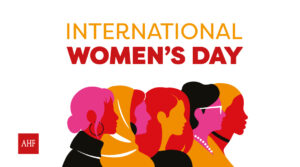When talking about precautions during sexual intercourse, the main protagonists are usually sexually transmitted infections (STIs). The purpose of condoms is to protect you from microorganisms that pass from one person to another through this route and that can cause significant health damage.
Some of these infections are curable, specifically those caused by bacteria, fungi and other parasites, but those caused by viruses do not have a cure.
This has prompted research to develop vaccines that stop transmission and, albeit slowly, the efforts are bearing fruit.
Hepatitis B vaccine
The hepatitis B virus is transmitted through bodily fluids of the infected person, such as blood, saliva, semen and vaginal fluids.
You could come into contact with these fluids by sharing syringes or equipment to inject drugs, or during unprotected sex, but also in more everyday activities such as sharing a razor or toothbrush.
Similarly, a pregnant woman can pass the virus to her child, and anyone can get the virus by touching the open sores or wounds of someone who has the infection.
According to information from the Vaccine History Portal of the College of Physicians of Philadelphia (USA), the main symptoms of hepatitis B are fever, abdominal pain, and yellowing of the skin and mucous membranes (jaundice). .
When the infection occurs in adults, up to 95% of them recover, but in the remaining 5% the infection becomes chronic and this puts them at risk of serious liver disease. In contrast, children and infants with hepatitis B are much more likely to become chronic.
Fortunately, in 1980 the first vaccine against hepatitis B was developed, and since we can protect babies with a three-dose schedule: the first, preferably, within a few hours of birth; the second at 2 months of age and the third at 6 months of age.
It is also recommended to vaccinate all children and adolescents under 19 years of age who were not vaccinated as infants, and even adults who are at high risk for hepatitis B, such as people who use injection drugs.
Human papilloma virus
HPV is actually a large family of viruses (more than 100 types), of which only some are sexually transmitted. Of these, in many cases the body manages to get rid of the infection on its own and there are no visible symptoms of it.
However, there are other cases in which certain types (strains) of HPV are installed in the body, mainly in the genitals, the anal area and the mouth and throat.
Depending on the type, sexually transmitted HPVs can cause:
- Genital warts
- Cancer of the cervix, anus, penis, mouth and throat
In 2006, the first vaccine against four types of HPV, the most risky to cause warts or cancer, was created. Then, in 2009, a second vaccine was released with protection against two high-risk HPV types. Later, in 2014, another vaccine was created that protects against 9 types of HPV.
This is one of the few vaccines that have been created that is capable of protecting against cancer, cervical cancer, which has thus become totally preventable.
For this reason, the manufacturers of the various options recommend vaccinating mainly girls between 11 and 12 years of age, but it can also be given as early as 9 years of age. The vaccination period can be extended up to 26 years for women who have not previously received this vaccine.
It has also been approved for use in male children from 11 to 26 years of age.
The ideal is to vaccinate adolescents before their first sexual contact, in order to obtain the greatest possible efficacy of the vaccine.
Getting vaccinated is taking care of yourself
As we have learned in recent years, with the COVID-19 pandemic, vaccination is an important tool that allows us to reduce health risks.
If you have questions about where to obtain these vaccines or you have more concerns about sexual health, come to AHF Latin America and the Caribbean and find out about our services, we have offices in 11 countries in the region.






